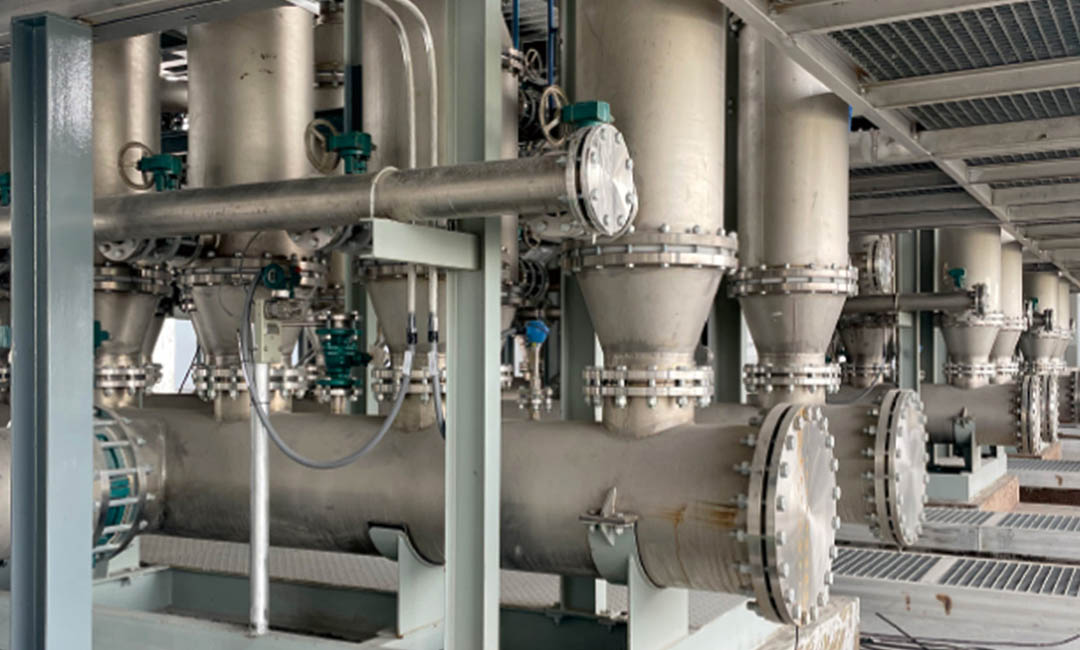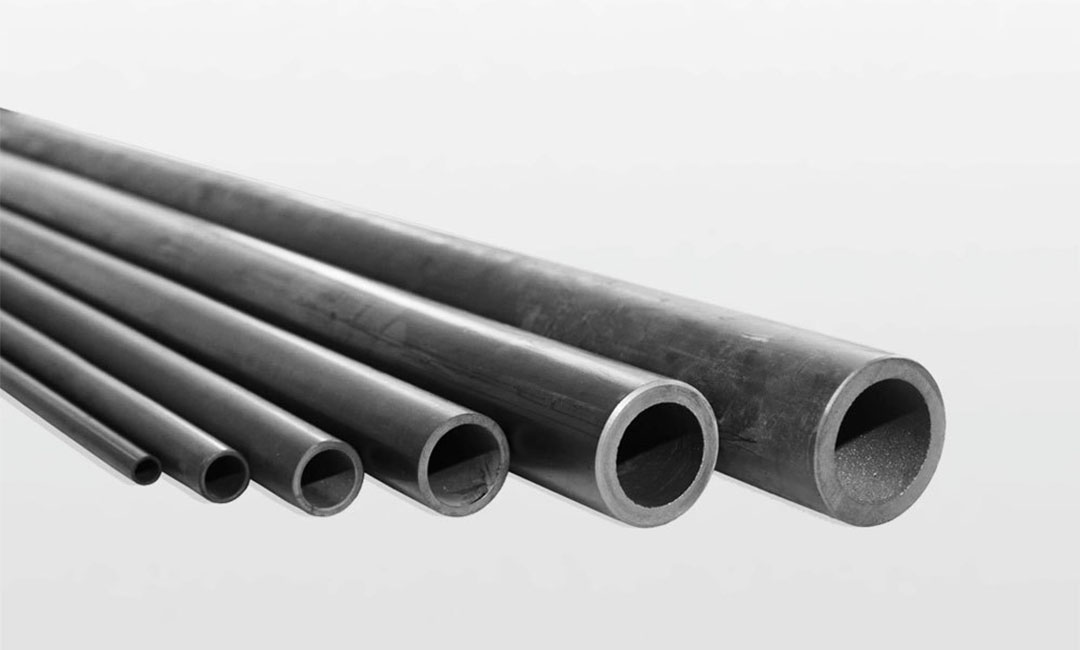Benefits of Using Silicon Carbide Membrane Reactors in Industrial Filtration Processes
Silicon carbide membrane reactors have emerged as advanced solutions for filtration in industrial processes. These innovative reactors offer numerous benefits that make them a preferred choice for various applications. One of the key advantages of using silicon carbide membrane reactors is their high thermal conductivity, which allows for efficient heat transfer and uniform temperature distribution. This feature is crucial in industrial filtration processes where precise control of temperature is essential for optimal performance.
In addition to their high thermal conductivity, silicon carbide membrane reactors also exhibit excellent chemical resistance. This makes them suitable for handling a wide range of corrosive chemicals and harsh operating conditions. The durability of silicon carbide membranes ensures long-term reliability and minimal maintenance requirements, reducing downtime and operational costs.
Another significant benefit of using silicon carbide membrane reactors is their high mechanical strength. These reactors can withstand high pressures and temperatures, making them ideal for demanding industrial applications. The robust construction of silicon carbide membranes ensures reliable performance under extreme conditions, providing a cost-effective solution for filtration processes.
Furthermore, silicon carbide membrane reactors offer superior filtration efficiency compared to traditional filtration methods. The unique structure of silicon carbide membranes allows for precise control of pore size and distribution, resulting in high filtration rates and excellent separation performance. This enhanced filtration efficiency leads to improved product quality and reduced waste generation, contributing to overall process optimization.

Moreover, silicon carbide membrane reactors are highly versatile and can be customized to meet specific filtration requirements. Whether it is for liquid-solid separation, gas-solid separation, or membrane distillation, silicon carbide membranes can be tailored to suit a wide range of industrial applications. This flexibility allows for greater process optimization and efficiency, leading to enhanced productivity and cost savings.
In conclusion, the benefits of using silicon carbide membrane reactors in industrial filtration processes are undeniable. From their high thermal conductivity and chemical resistance to their superior mechanical strength and filtration efficiency, silicon carbide membranes offer advanced solutions for a wide range of applications. By incorporating silicon carbide membrane reactors into filtration systems, industries can achieve improved performance, reduced maintenance costs, and enhanced product quality. With their versatility and reliability, silicon carbide membrane reactors are poised to revolutionize the field of industrial filtration and set new standards for efficiency and effectiveness.
How Silicon Carbide Membrane Reactors Improve Efficiency and Performance in Filtration Systems
Silicon carbide membrane reactors have emerged as advanced solutions for filtration in various industries due to their superior performance and efficiency. These reactors utilize silicon carbide membranes, which are known for their high thermal conductivity, chemical resistance, and mechanical strength. This unique combination of properties makes silicon carbide membrane reactors ideal for applications where traditional filtration methods fall short.
One of the key advantages of silicon carbide membrane reactors is their ability to operate at high temperatures and pressures without compromising performance. This allows for more efficient filtration processes, as the membranes can withstand harsh operating conditions without degradation. In addition, the high thermal conductivity of silicon carbide membranes enables rapid heat transfer, leading to faster filtration rates and increased productivity.
Another benefit of silicon carbide membrane reactors is their exceptional chemical resistance. Unlike traditional filtration materials such as polymeric membranes, silicon carbide membranes are highly resistant to corrosive chemicals and solvents. This makes them ideal for applications in industries such as pharmaceuticals, petrochemicals, and wastewater treatment, where exposure to aggressive substances is common.
Furthermore, the mechanical strength of silicon carbide membranes ensures long-term durability and reliability. These membranes are capable of withstanding high pressures and mechanical stresses, making them suitable for continuous operation in demanding environments. This durability translates to lower maintenance costs and reduced downtime, ultimately leading to cost savings for businesses.
Silicon carbide membrane reactors also offer improved filtration performance compared to traditional methods. The unique structure of silicon carbide membranes allows for precise control over pore size and distribution, resulting in more efficient separation of particles and contaminants. This enhanced filtration capability leads to higher product quality and purity, making silicon carbide membrane reactors a preferred choice for industries that require stringent filtration standards.

In addition to their superior performance, silicon carbide membrane reactors are also environmentally friendly. These reactors require less energy and resources to operate compared to traditional filtration systems, leading to reduced carbon emissions and overall environmental impact. By choosing silicon carbide membrane reactors, businesses can demonstrate their commitment to sustainability and responsible manufacturing practices.
Overall, silicon carbide membrane reactors represent a significant advancement in filtration technology, offering a range of benefits including high thermal conductivity, chemical resistance, mechanical strength, and improved filtration performance. These reactors are ideal for industries that require efficient and reliable filtration solutions, such as pharmaceuticals, petrochemicals, and wastewater treatment. With their ability to operate at high temperatures and pressures, withstand corrosive chemicals, and deliver superior filtration performance, silicon carbide membrane reactors are poised to revolutionize the way filtration systems are designed and operated. Businesses that invest in silicon carbide membrane reactors can expect to see improvements in efficiency, productivity, and product quality, ultimately leading to a competitive edge in the market.
Future Trends and Developments in Silicon Carbide Membrane Reactor Technology for Enhanced Filtration Solutions
Silicon carbide membrane reactors are paving the way for advanced filtration solutions in various industries. These innovative reactors utilize silicon carbide membranes to achieve superior filtration efficiency and durability compared to traditional filtration methods. As the demand for cleaner and more efficient filtration processes continues to grow, silicon carbide membrane reactors are emerging as a promising technology for meeting these needs.
One of the key advantages of silicon carbide membrane reactors is their high thermal and chemical stability. This allows them to withstand harsh operating conditions, such as high temperatures and corrosive environments, without compromising their filtration performance. As a result, silicon carbide membrane reactors are well-suited for a wide range of applications, including water treatment, gas separation, and chemical processing.
In addition to their exceptional stability, silicon carbide membrane reactors also offer high permeability and selectivity. This means that they can effectively separate desired molecules from a mixture while allowing only the desired molecules to pass through the membrane. This results in a more efficient and cost-effective filtration process, as less energy and resources are required to achieve the desired separation.
Furthermore, silicon carbide membrane reactors are highly resistant to fouling, which is a common issue in traditional filtration systems. Fouling occurs when particles or contaminants accumulate on the surface of the membrane, reducing its effectiveness over time. With silicon carbide membranes, fouling is minimized due to their smooth and non-porous surface, allowing for continuous and reliable filtration performance.
As the demand for cleaner and more sustainable filtration solutions continues to grow, the development of silicon carbide membrane reactors is expected to accelerate. Researchers and engineers are exploring new ways to enhance the performance and efficiency of these reactors, such as optimizing membrane design, improving membrane fabrication techniques, and exploring new applications for this technology.
One area of focus is the development of silicon carbide membrane reactors for water treatment applications. With the increasing global demand for clean and safe drinking water, there is a growing need for advanced filtration technologies that can effectively remove contaminants and impurities from water sources. Silicon carbide membrane reactors have shown great potential in this area, offering high filtration efficiency, durability, and reliability for water treatment applications.
Another promising application for silicon carbide membrane reactors is in gas separation processes. These reactors can effectively separate different gases based on their molecular size and properties, making them ideal for applications such as natural gas purification, hydrogen production, and carbon capture. By utilizing silicon carbide membranes, gas separation processes can be made more efficient and environmentally friendly, contributing to a more sustainable future.
In conclusion, silicon carbide membrane reactors are advancing filtration technology and offering innovative solutions for a wide range of industries. With their high stability, permeability, selectivity, and resistance to fouling, these reactors are well-positioned to meet the growing demand for cleaner and more efficient filtration processes. As research and development in this field continue to progress, we can expect to see even more exciting advancements in silicon carbide membrane reactor technology in the future.

